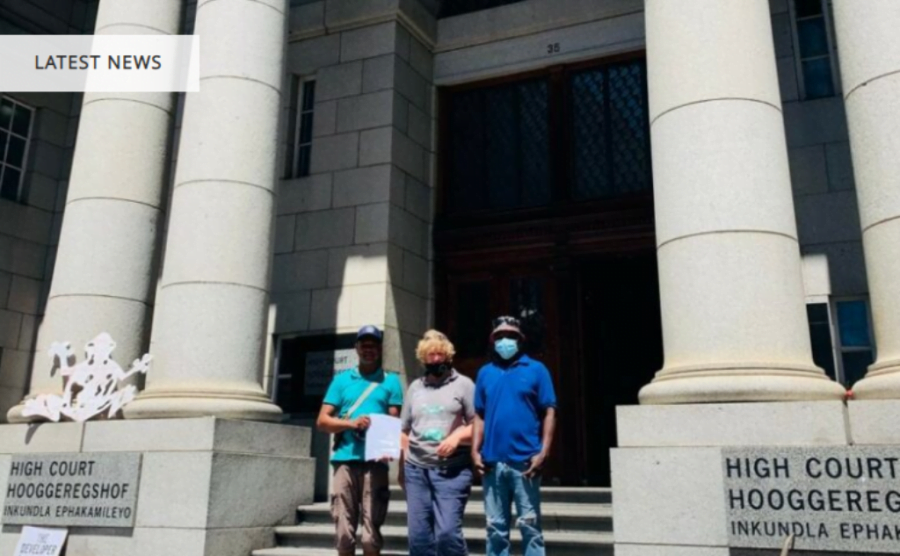The Green Connection lodged an appeal against the environmental authorization on January 26 – granted by the Department of Mineral Resources and Energy (DMRE) on December 20 – which allows Searcher Geodata UK to undertake a number of 3D seismic survey activities off the West Coast of South Africa in an area located between approximately 256 km offshore of St Helena Bay to approximately 220 km offshore of Hondeklip Bay.
In its appeal, The Green Connection asserts that offshore seismic surveys clearly pose a threat of serious or irreversible harm to individual species and marine ecosystems, that there is clearly scientific uncertainty as to the magnitude of this harm, and that the proposed mitigation measures are not all effective in minimizing this harm.
The eco-justice organization also argues that the need and desirability section of the final Basic Assessment Report (BAR) – which indicates that the project aims to identify oil and gas resources to be used in energy production or the processing of materials – should also have addressed the risks and impacts associated with the use of any natural gas discovered, extracted and used, particularly from a climate change perspective.
The Green Connection calls for the Department of Fisheries, Forestry, and the Environment (DFFE) – the authority responsible for making the final appeal decision, in terms of section 43 of the National Environmental Management Act (NEMA) – to set aside the Searcher environmental approval.
According to The Green Connection’s Lisa Makaula, “What we, as an eco-justice organization working with fishing communities, do not understand is why these companies refuse to learn the lessons of previous judgements where it was accepted that seismic surveys do, in fact, cause direct and indirect physical harm to marine ecosystems. This could undermine the livelihoods of the people who depend on the ocean. It is also important to note that the proposed mitigation measures are not all effective in preventing the likely harm. But also, from a climate change perspective and the right to food, exploring for new oil and gas reserves is neither needed nor desirable.”
The saga started in January 2022, when Searcher first commenced seismic blasting operations. This was met with a massive outcry from small-scale fishers from the West Coast and beyond. The fishers and The Green Connection went to court a year ago. In February 2022, the Western Cape High Court granted an order on an urgent basis directing Searcher to discontinue any activities related to the seismic survey, until the merits of the interim interdict could be argued. On 1 March 2022, the Western Cape High Court granted the interim interdict, ruling that the ban against Searcher’s seismic blasting would remain because (among other things) small-scale fishing communities on the West Coast – whose livelihoods could be affected – were not adequately consulted. Additionally, since there are too many unknowns, in terms of the potential for irreparable harm, the court applied the ‘precautionary approach’ and sent Searcher packing.
Then in October 2022, Searcher was back in a second attempt to conduct seismic surveys off South Africa’s West Coast (in a smaller but partially overlapping area) and, as The Green Connection’s submission on Searcher’s draft BAR highlighted, there were several issues that, in its view, had not adequately been addressed.
Makaula says that according to an expert report obtained by the Green Connection and put up in support of its appeal, the mitigation measures proposed by Searcher to reduce the acoustic impacts of the seismic surveys are not all effective. For example, there is serious doubt as to the effectiveness of onboard Marine Mammal Observers (MMOs).
She says, “Findings from a scientific monitoring study conducted on humpback whales between 2018 and 2020 showed that even during the day, with trained observers, up to 44% of humpback whales – which are very large animals – went undetected. It is likely that the detection rate for smaller species, such as dolphins, seals, and turtles would be much lower. And since seismic surveys continue through the night, and during adverse weather conditions, visual observations cannot be effective. Reliance on passive acoustic monitors is also problematic, as not all species make sounds that can be detected. This is very concerning, from a biodiversity perspective, since endangered turtles, including juveniles, migrate along this path.”
“It is concerning that Searcher and the DMRE do not seem to have taken the previous Searcher judgment into account. The court accepted that physical damage to marine animals has been directly linked to the kind and level of sound emitted during a seismic survey. This is why Searcher had to mitigate the damage. In light of the uncertainties regarding the magnitude of this harm on different species – including young and smaller fish, turtles and whales – a precautionary approach was necessary. As there is a growing body of scientific evidence exposing the negative impacts of seismic surveys to marine life and ecosystems, equitable and effective participation in the decision-making process – as required by the National Environmental Management Act (NEMA) – must be ensured,” says Makaula.
The Green Connection believes that seismic surveys and oil and gas exploration drilling projects are undesirable, unnecessary and cannot provide any solution to the short-term electricity crisis but could directly lead to job losses for small-scale fishers, in addition to causing environmental damage.

